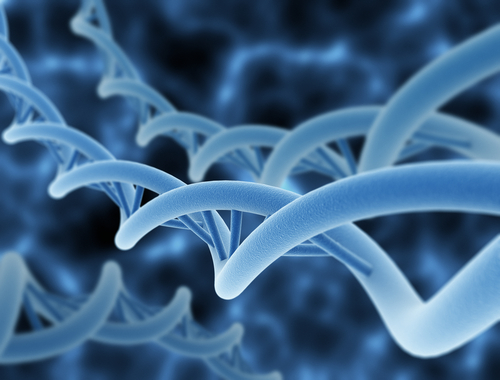Genetic Defects Found To Potentially Lead to PAH, Endothelium Injury
Written by |

When exploring the origins of pulmonary arterial hypertension, researchers regard injuries to the endothelium of blood vessels as an important factor leading to the development of the disease, as remodeling in the pulmonary vessels can lead to increased pressure and resistance in the arteries. In order to address endothelium injury and create new solutions for patients with pulmonary arterial hypertension, researching the genetic profiles of diseased and healthy tissues can shed light on appropriate pathways that contribute to injury and disease.
A group of scientists at Stanford University School of Medicine is doing just that: researching the transcriptome of cells from the pulmonary arteries of patients with idiopathic pulmonary arterial hypertension or individuals who are otherwise healthy. They discovered a variety of genes that are differentially expressed between healthy and disease states and wrote about their findings in “RNAseq Reveals a Novel Pathway of Endothelial Dysfunction in Pulmonary Arterial Hypertension,” an article published in the American Journal of Respiratory and Critical Care Medicine.
“This is the first RNAseq transcriptome comparison of pulmonary arterial endothelial cells from patients with idiopathic pulmonary arterial hypertension vs. controls, and a novel set of genes is now implicated in disease pathogenesis,” according to the article. “The genes identified as altered in these patients have direct effects on pulmonary arterial endothelial cell function.”
Data were collected from six patients with idiopathic pulmonary arterial hypertension and seven controls. The researchers first started by looking at genes that were expressed more or less in patients with pulmonary arterial hypertension. When they identified a lower expression of bone morphogenetic protein receptor-2 (BMPR2) pathway-related genes, the researchers took a closer look at these genes using genetic engineering of cells and mice.
Two of the most notable changes were in collagen IV (COL4) and ephrinA1 (EFNA1), two proteins that are vital to developmental events. Removing either of these genes resulted in more severe pulmonary hypertension. “The novel relationship between BMPR2 dysfunction and reduced expression of endothelial COL4 and EFNA1 may underlie vulnerability to injury in pulmonary arterial hypertension,” stated the authors. Screens of genetic material from patients with pulmonary arterial hypertension may therefore be able to explain their disease pathogenesis, especially if defects in COL4 or EFNA1 are found.
Glossary of Terms:
[wikibox lang=”en”]pathogenesis[/wikibox]
[wikibox lang=”en”]BMPR2[/wikibox]
[wikibox lang=”en”]Type IV collagen[/wikibox]
[wikibox lang=”en”]Ephrin-A1[/wikibox]



